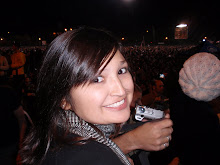For my creative writing seminar, we got asked to write an essay about how we see ourselves as a reader. What do we read, who do we read, what authors do we like, and what is writing in general and what is it's purpose. I liked my essay so I thought I would share it with you.
My favorite author is Ken Kesey. It has been this way since 2005 and I am sure that it will stay this way. Our relationship is different than most relationships between a reader and their favorite author. I have only read two of his novels and only really enjoyed One Flew Over the Cuckoo’s Nest. Not that Sometimes a Great Notion isn’t a well written and wonderful example of literary art— it is, in case you are curious— it’s just that reading over 700 pages about logging really isn’t my literary niche. Now my infatuation was not love at first sight. In fact, I thought he was too odd for me at first. It was one sentence that is nestled in the middle of Cuckoo’s Nest: “But it’s the truth even if it didn’t happen.”
The perfect sentence.
This one sentence convinced me to write. This one sentence taught me the basics of writing.
Really, what is the truth? Is it fact? Is it photographs, records, or data? Can the truth be in oral stories, printed stories, or visual stories? Can it be in memory? All writers try to test some truth. They build off of truth, challenge a truth, or completely humiliate the truth by drowning it in falsity. But we all see a different truth. I see the murder from the northeast corner and another might see the murder from the west— our truths are two different and varying truths. They might even challenge each other.
And truths from memory are the foxes of the bunch. No one remembers anything correctly. You can try but you will fail. But that is the fun of being human— we attract error like it is our pastime. The truth we remember might have never happened at all. In fact, we pass falsities as truths all the time and don’t even realize it. Liar.
But this is where writing comes in. Writers try to interpret all these “maybe truths.” They might expand on them, confront them, or explore what the actual truth is. It doesn’t matter what they do with their “truth,” as long as they are doing something with it. At the base of every story is a kind of truth. That is its nugget, its heart, its raw and exposed form.
Writing makes this interpretation of the truth available to everyone to grasp, read, and interpret. Each book is a piece of truth or different perception of the truth. So think about it: Once every book that is to ever be written is written, we will be able to know the actual, real truth. All these pieces will flood together and, insert drum roll here, the truth! But that will never happen (or at least I hope to not be around when it does) so instead we get to examine the pieces and hopefully one day develop a decent enough grasp of truth in order to be happy with ourselves.
So I don’t prefer a genre, I read as much as I can (though I do tend to ignore science fiction and vampire fiction) so I can gather as many pieces as possible.
Thursday, January 14, 2010
Subscribe to:
Comments (Atom)

